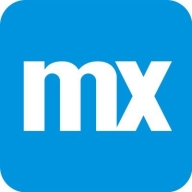

Appian and Mendix are leading platforms in the low-code application development space. Appian appears to have the upper hand due to its cohesive architecture and rapid, low-code development features.
Features: Appian enhances process management with a rapid, low-code configuration, allowing quick app implementation and ROI. Its cohesive structure supports intuitive use, simplifying complex technical operations. Mendix excels in rapid prototyping and enterprise application development with its visual modeling and microflow features. Its device-agnostic solutions and robust integration capabilities are also notable features.
Room for Improvement: Appian requires improvements in UI customization and scalability, and enhancements to its integration with other enterprise systems. Mendix, while strong in rapid development, could improve its UI flexibility and support for complex datasets, and refine its pricing model for public-facing applications.
Ease of Deployment and Customer Service: Appian and Mendix both support diverse deployment needs with options such as public cloud, private cloud, and on-premises. Appian is recognized for its responsive customer service, maintaining stability despite growing demands. Mendix also receives high marks for customer satisfaction, though technical support for complex issues may occasionally lag.
Pricing and ROI: Appian offers competitive pricing advantageous to large enterprises, with significant ROI seen in rapid deployment and process efficiency. However, its high cost can deter smaller businesses. Mendix provides substantial ROI due to reduced development time and cost but is perceived as expensive, with licensing complexities possibly hindering smaller enterprises. Both platforms offer long-term cost-effectiveness, emphasizing reduced manpower and accelerated process optimizations.
Using Appian is saving us five full-time employees, which is significant since we currently have only four team members.
They see return on investment in terms of cost savings, time savings, more efficient processes, and more efficient employees.
Appian is very efficient, allowing us to build a lot of applications within a financial year, making it cost-effective.
It's not that they're really firing that personnel, but they can often focus on the core that really matters instead of repetitive processes in Excel forms and all of the overhead and human error that comes with that.
Since Mendix is a low-code platform, the ROI is significant; we save a lot of money and require fewer people to do an application, reduced to two, which drastically decreases development time because this is not traditional programming; just drag and drop, and we can complete projects that would take years within months.
I have seen a return on investment with Mendix, as in default software development, a team with 10 developers or more is needed, while here we can do it with one or two developers, so it is truly a money saver for the company.
I would give Appian's customer support 10 out of 10 due to their next-level support.
Their customer service is responsive, and the team is very prompt for support.
The technical support for Appian rates as 10 out of 10 because they have a great support team.
I haven't often needed to seek direct support from Mendix teams as their online resources and knowledge database are comprehensive.
Mendix provides proper support, troubleshooting options, and a helping community.
If it's about having an issue that I can't solve despite being a Mendix expert and having tried every single bit and piece, support can feel like a stone wall.
On a scale of one to 10, Appian rates as a nine for scalability.
Our volume has increased by 20% in the two years since using Appian, and it can handle the increased volume effectively.
Initially, without much coding, I can easily handle five thousand records.
Mendix supports scaling well with its comprehensive online documentation and learning paths.
Mendix provides options for handling scalability and maintainability through features like validation, workflow and nanoflow minimization, and user components, enabling projects to be easily managed and scaled.
Also solutions processing data at scale, talking about one million packages a day.
We have tested Appian during peak usage and off-peak times, and we have not experienced any issues such as lagging or system disruptions.
It depends on how it has been designed and how it has been configured.
The stability of Appian would rate as nine, as it's a stable environment.
Mendix has been stable in my experience, with reliable performance for enterprise applications and minimal downtime or critical issues.
I recently encountered an issue with deploying applications on the Mendix sandbox, which took a week to resolve.
It has room to improve for use cases where the users are public facing, where anonymous users could come to a site and run a business workflow or interact with some data.
Appian can be improved by adding a geo-location tagging feature, which would be really helpful for identifying remitter addresses.
If there is a very complex process that includes a lot of data transitioning and memory-centric processes, it consumes a lot of memory.
Access to the database is limited in Mendix's public cloud, preventing direct database interaction or inspection.
I choose a seven mainly due to the issues we've faced with slowdowns and bugs during development, while runtime has been very stable.
Native development is not very strong, and some developer tools are missing, such as shortcuts to edit multiple variables.
Appian provides value for money, is easy to use, has a straightforward setup procedure, and offers great support from the Appian team.
On the pricier side, both Appian and Pega are enterprise-level solutions, placing them on the slightly higher side.
The pricing of Appian is based on the number of users and generally ranges from 70 to 100 USD per user per month.
The app license costs between $13,000 to $14,000, which is prohibitive for startups.
My experience with pricing, setup cost, and licensing is reasonable;
From the pricing shown on the Mendix webpage, we have a basic package where you pay 60 Euros a month for five users and 10 Euros per additional user.
The zero-code integration feature is remarkable, allowing for ease of data transfer and workflow enhancement.
Appian is aiding in leveraging AI technologies in multiple ways: one way is for developers, as they make development efficient and quick by enabling developer co-pilots across various phases of the application, which helps design Appian quickly and provides suggestions along the way.
After switching to Appian, it can extract data from MT103, eliminating the need for manual data entry.
Mendix's integration capabilities are impressive, allowing for rapid and on-the-fly integration of almost anything imaginable.
The best features that Mendix offers are proper guardrails that prevent starting from scratch, ensuring a certain level of security, user experience, and standardization for implementing workflows, API integrations, and how you set up your domain model.
For security, I value the built-in authentication, role-based access control, and data protection features, which make enterprise apps safer without needing heavy custom setup.
| Product | Market Share (%) |
|---|---|
| Mendix | 4.2% |
| Appian | 4.9% |
| Other | 90.9% |


| Company Size | Count |
|---|---|
| Small Business | 20 |
| Midsize Enterprise | 9 |
| Large Enterprise | 44 |
| Company Size | Count |
|---|---|
| Small Business | 28 |
| Midsize Enterprise | 7 |
| Large Enterprise | 25 |
Appian is a unified low-code platform and solution used by businesses to build enterprise applications and workflows. This product adapts to the needs of clients and the technologies they are already using to combine their data in a single workflow and maximize resources. The platform has four main components through which it transforms the work process for companies of various sizes. They are:
Appian is utilized across a diverse set of industries, including automotive and manufacturing, energy and utilities, education, financial services, telecom and media, transportation, retail, insurance, healthcare, and life sciences. The most frequent use cases of Appian are customer journey, governance, risk and compliance, operational efficiency, supply chain, distributed order management, and environmental, social, and governance (ESG) management.
Appian Features
Appian has various features that allow users to create solutions for their businesses. These features can be separated into a few groups according to function, including automation, low-code application development, and integrations and data. Some of the most frequently used features of Appian include:
Appian Benefits
The benefits of using Appian include:
Reviews from Real Users
A practice leader - digital process automation at a computer software company values Appian highly because the product is easy to develop, low-code, and has a good user interface.
Alan G., an advisory board member at Codecon VR, Appian offers a clear application life cycle, easy to learn documentation, and comes with a fundamentals course.
Mendix is a low-code application development platform that helps your organization accelerate its application development lifecycle. The solution is designed to enable you to create software faster by abstracting and automating the development process for better business outcomes at speed and scale. Mendix has many key capabilities, including a tailored IDE for every developer, built-in collaboration tools for team development, feedback management, agile project management, the ability to build a truly responsive design across devices, and much more.
Mendix Features
Mendix has many valuable key features. Some of the most useful ones include:
Mendix Benefits
There are many benefits to implementing Mendix. Some of the biggest advantages the solution offers include:
Reviews from Real Users
Below are some reviews and helpful feedback written by PeerSpot users currently using the Mendix solution.
PeerSpot user Somnath G., Solution Architect and LowCode Practice Lead at a tech services company, says, "What I found most valuable in Mendix is that it's very much suitable for mobile apps such as native Android or IOS supported mobile apps. The multiple features of the platform are very, very attractive and very popular. Mendix has technical features such as microflows and nanoflows. You can also access data models in the platform. These are the features that are very, very strong in Mendix. I got my hands dirty on other low-code platforms, but I have not seen such strong features in them compared to the microflows, nanoflows, and data model access that are in Mendix, including creating and integration. The platform has out-of-the-box adapters or out-of-the-box-connectors that you can integrate with different interface applications such as SAP, Salesforce, Oracle EBS, etc."
Sameer V., Consulting Manager at Deloitte, mentions, “Their native mobile capability is very good. In general, the way they launch the product has been great. Their product launching strategy is far better than any other platform. I work in OutSystems and Mendix. They tend to be more on the legacy side, OutSystems. With this solution, the product launching strategy is very, very agile. I really like when they roll out their updates, which are very, very frequent.”
Robert B., Solutions Architect at a computer software company, explains, The solution is just very quick and responsive. The initial setup is very straightforward, and those implementing the product do not have to be very technologically advanced in order to manage the process.”
We monitor all Low-Code Development Platforms reviews to prevent fraudulent reviews and keep review quality high. We do not post reviews by company employees or direct competitors. We validate each review for authenticity via cross-reference with LinkedIn, and personal follow-up with the reviewer when necessary.